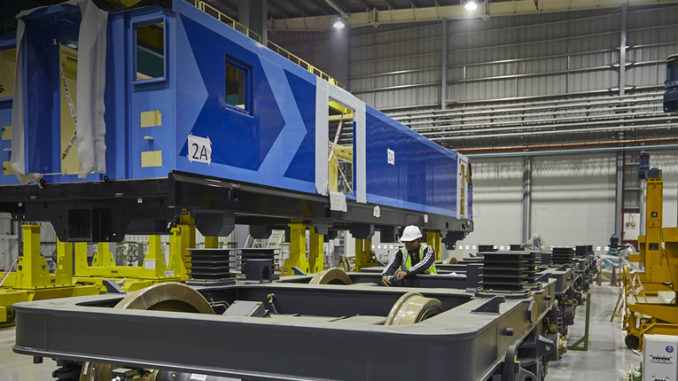
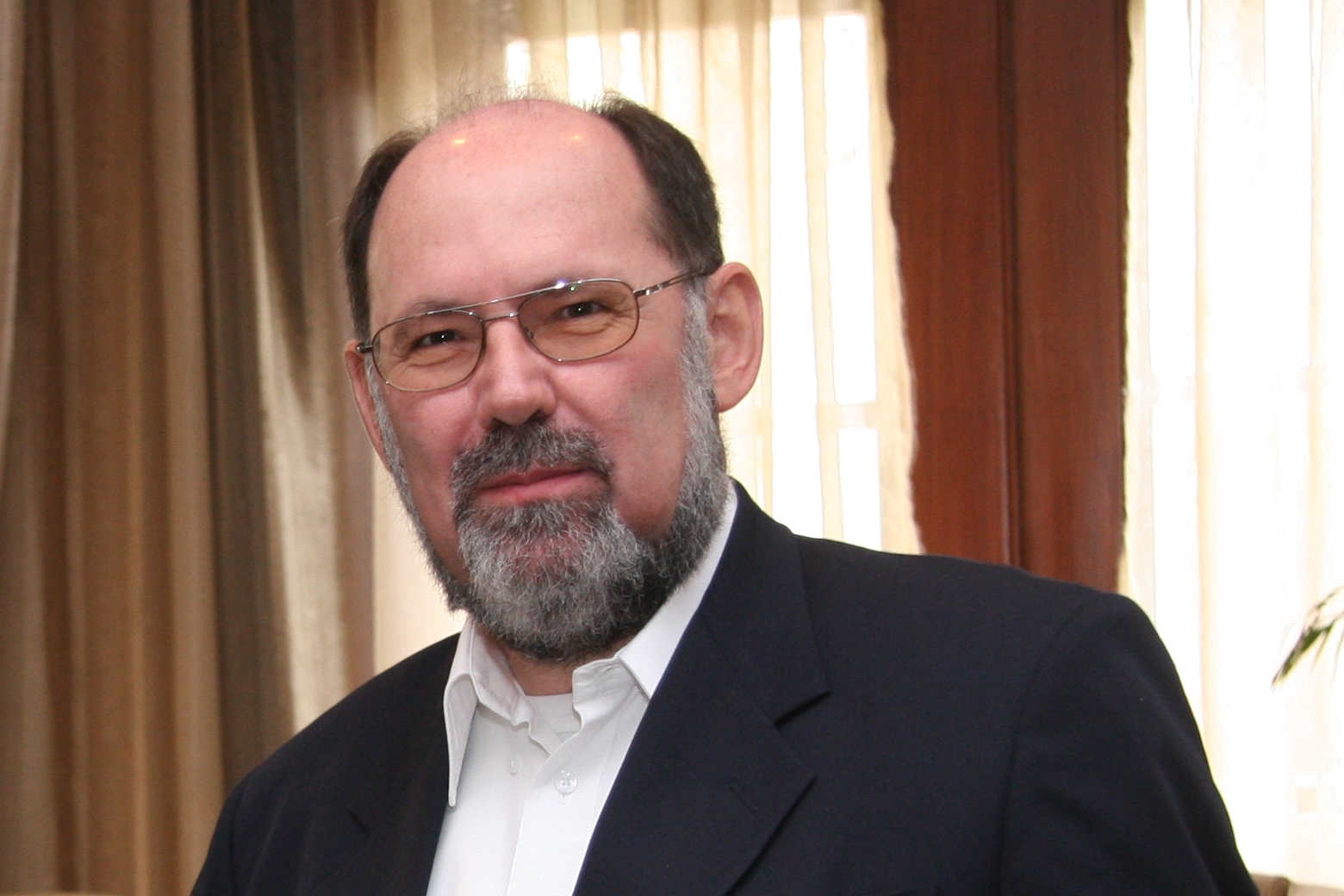
Mr. Alain Spohr
Managing Director, India & South Asia, Alstom
As the Managing Director of Alstom India and South Asia, Mr. Alain Spohr is responsible for expanding the Alstom footprint in the country and for ensuring optimized delivery for on-going projects. Mr. Spohr brings with him over 35 years of experience and has been associated with the Alstom group in France on and off since 1982. He has since held several positions heading different business verticals and practices.
In his last role, Mr. Spohr was the MD & CEO of the GE/Bharat Forge Joint Venture and the India Country Leader for Steam Power Systems at GE Power. Under his leadership, the company executed a $150 million turbine project within stipulated time and budgets and scaled up its knowledge center in the areas of project management, engineering, construction and commissioning. Mr. Spohr’s strong exposure in Industrial and factory operations helped guide GE through rapid localization, cost reductions and clearing backlogs leading the company to secure unprecedented and significant market share.
Mr. Spohr’s rich career in India spans over 14 years which not only gives him a keen understanding on the country’s business environment but also its culture and growth trajectory. He holds a degree in Mechanical Engineering from France.
INTERVIEW with Mr. Alain Spohr
Rail Analysis India : Firstly, Congratulations for winning the rolling stock contract for Mumbai Metro line -3. Please inform us more about this contract along with the modern features of the Metro Coaches?
Mr. Alain Spohr : It is great honour and responsibility to be associated with a hallmark metro project such as Mumbai metro.The Mumbai Metro Line 3 will connect the busiest and most congested regions in the city. It will have 26 underground and one street-level station. Line 3 will be the longest underground metro line in India. Once it is in operation, it will give a massive relief to Mumbaikars and reduce the strain on the city’s surface transport network.
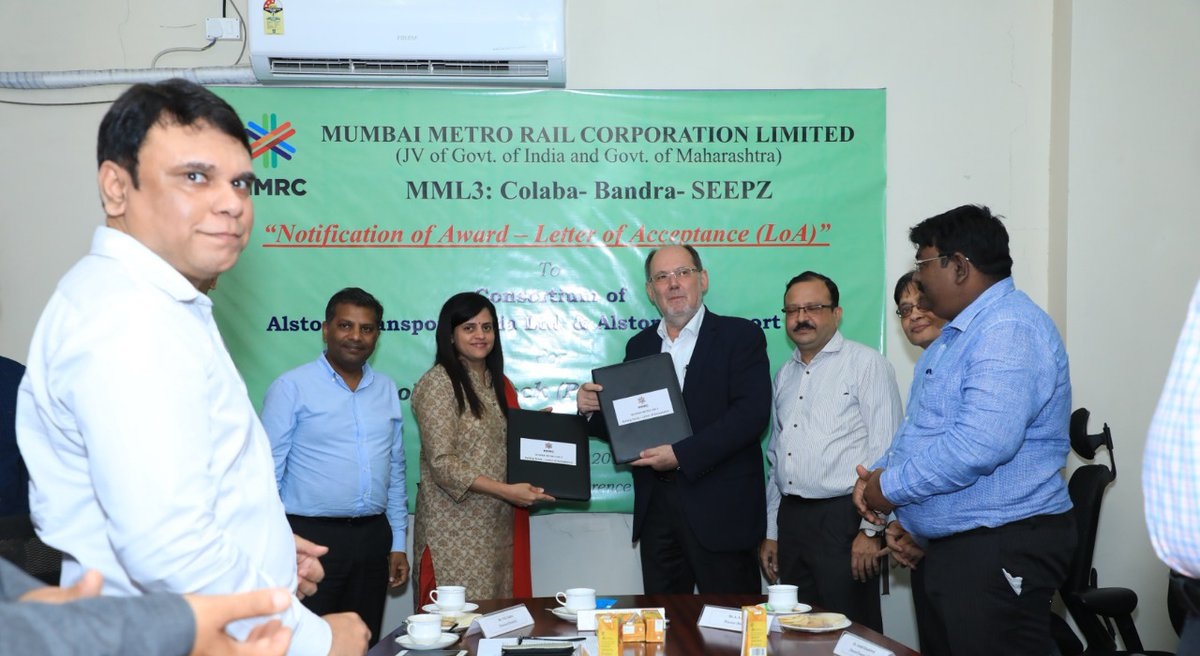
(Alstom wins major rolling stock contract for Mumbai Metro Line 3)
“ Alstom will provide 248 coaches, 31 train sets of eight cars each to MMRC for line 3. Each train will have a capacity of carrying 2500 passengers. We will design, manufacture, supply, install, test and commission the sets. We are particularly proud of this contract, because it represents the biggest rolling stock contract for Alstom in India in the urban sector. This is further confirmation of our Make in India strategy. “
Rail Analysis India : What will be the timeline of delivering the coaches to MMRC? Will these be manufactured in India?
Mr. Alain Spohr : Complete designing and development of the metro cars will be executed out of Alstom’s Bengaluru (India) Engineering center, and the 248 metro cars will be manufactured from Alstom’s state-of-the-art rolling stock manufacturing facility at Sri City in Andhra Pradesh. So, it will be another iconic Make in India project. We are confident of delivering the metro cars within the stipulated time frame with the first delivery starting early 2020.
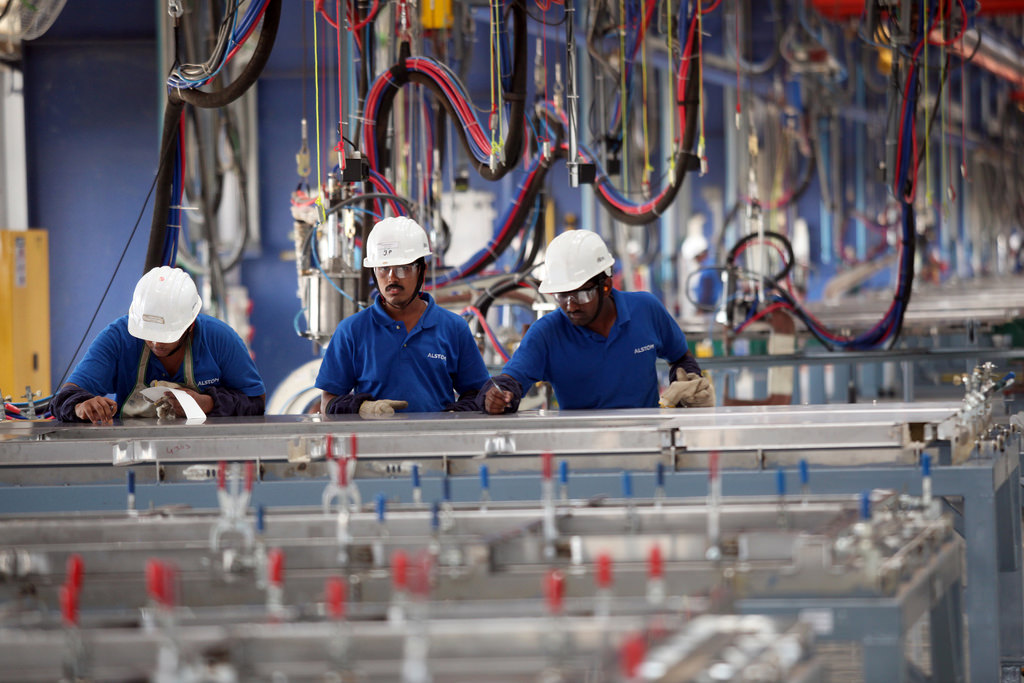
(Alstom Manufacturing Factory in Sri City in Andhra Pradesh)
Rail Analysis India : What shall be the Make in India component for this contract?
Mr. Alain Spohr : Alstom has been a firm believer of Make in India. All our projects Kochi, Lucknow, Chennai have a strong Make in India component. Regarding Mumbai Metro, all the metro cars will be manufactured out of our state-of-the-art rolling stock manufacturing facility at Sri city.
Rail Analysis India : How are the coaches different from the ones supplied to Lucknow Metro, Chennai Metro and Kochi Metro by your team?
Mr. Alain Spohr : The Mumbai metro train sets will be the first in India to have the UTO (Unattended Train Operation) feature as mandated by the Ministry of Urban Development.
As mentioned earlier, the Mumbai Metro phase 3 is the first Indian metro project that will implement 75% motorization which will help trains to quickly accelerate and decelerate. Additionally, these trains will be also equipped with regenerative braking system that will enable the energy generated during braking to be stored and used later.

(UTO ( Unattended Train Operation )
Rail Analysis India : As one of the Dedicated Freight Corridors are expected to be inaugurated soon, what is the latest status of your supply of the Electric locomotives to Indian Railways? When is the next batch expected to be supplied?
Mr. Alain Spohr : We are on time with the delivery schedule of the electric locomotive project and the first prototype is currently undergoing trials at Saharanpur. Post the completion of all statutory trials and tests, the locomotive will be ready for commercial service. As per stipulated time lines we plan to supply the next 5 locomotives by 2019, 35 locos in 2020, 60 in 2021 and 100 each year till 2029.
Rail Analysis India : In Ref. to the Signaling Project of India – ETCS Level 2? What are the technical capabilities of Alstom in this regard?
Mr. Alain Spohr : The European Train Control System (ETCS) Level 2 improves safety level and transport services. Alstom has been a driving force in establishing European interoperability. Alstom took part in developing the technical specifications for European Rail Traffic Management System (ERTMS), defining interoperability criteria and validating the system on six pilot lines.
Alstom offers two signaling solutions: Urbalis, a CBTC solution for metros and Atlas, an ERTMS system for mainline.
“ Alstom’s Urbalis CBTC solutions—which allows precision control of metro trains with or without drivers—accounts for over 25% of all radio CBTC solutions in operation around the world. There are over 90 Urbalis CBTC metro lines in 25 countries, covering more than 1,600 kilometers. “
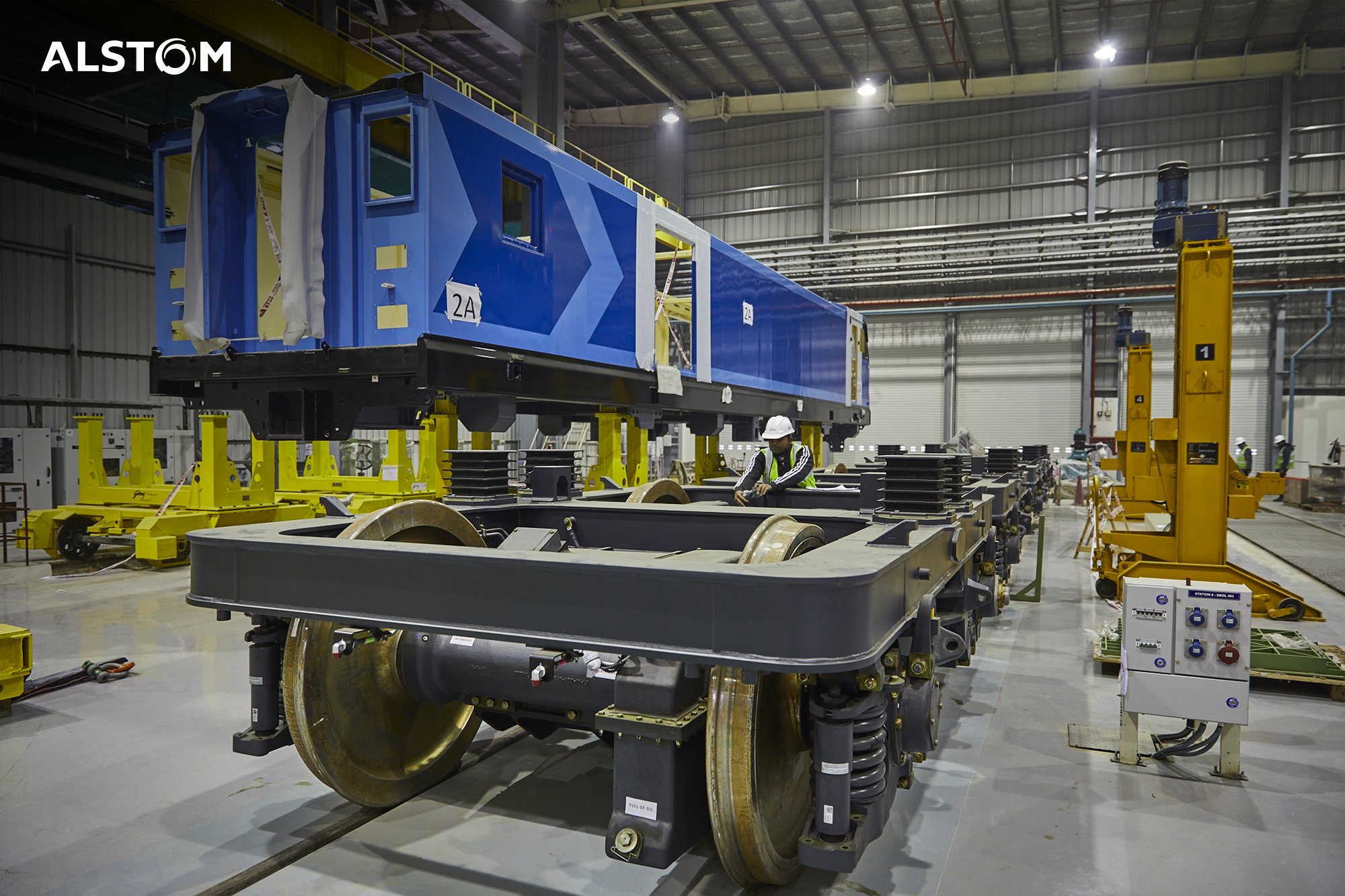
(Alstom Madhepura Factory)
References include lines in Sydney, Beijing, Nanjing, Shanghai, Milan, Sao Paulo, Toronto, Panama, Riyadh and many more.
In mainline signaling,we have Atlas 400 and 500, operational in 23 countries, which can adapt to different traffic requirements, covering networks that operate between 6 and 600 trains per day. 38% of ERTMS Level2 in service in Europe are with Alstom.
Atlas has an extensive range of solutions to modernize train services. It has been designed to meet the crucial requirements of safety, reliability and functionality. It also helps in traffic control, speed control and train detection and supports a low-impact approach to transit service, and is designed for efficient maintainability.
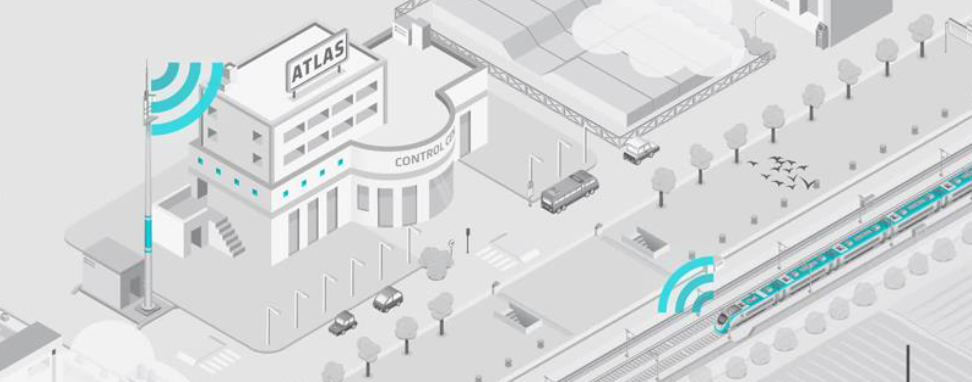
(Electrical devices for detecting trains are track circuits: a current is sent to the rails and detects any absence of train, or axle counters: the passing wheels are counted in and out of a given section.)
These solutions integrate new technologies into major portions of customers’ existing train control systems. The Atlas solution, wherever it is deployed, has already increased traffic capacity by 14% on equipped lines, and is the most attractive solution for customers today.

